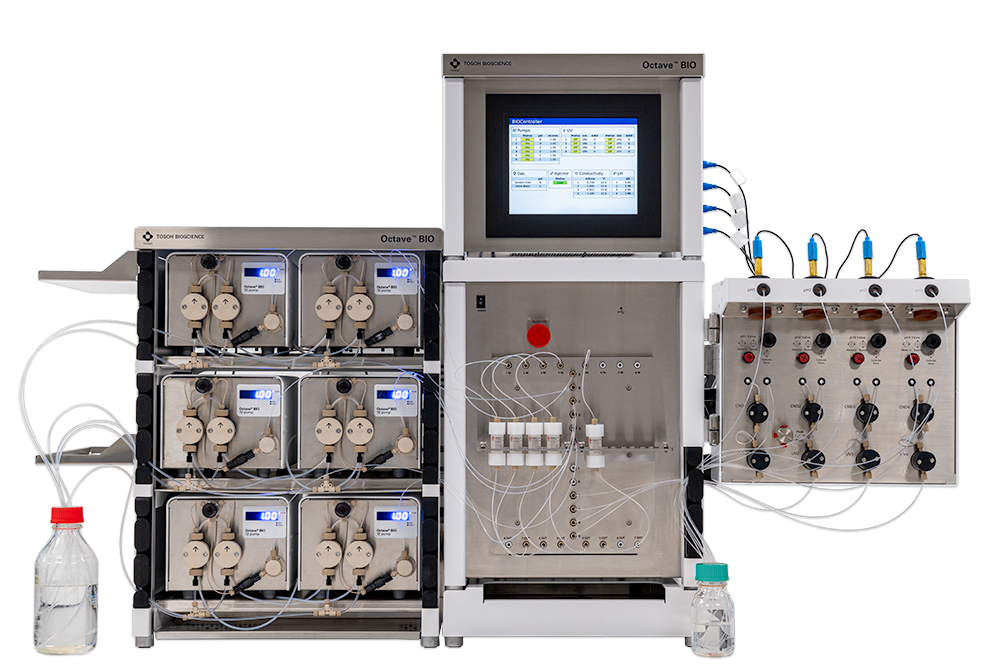Multi-column chromatography (MCC)
Multi-column chromatography (MCC) is an innovative downstream processing (DSP) method for the purification of biological targets.
MCC can be run continuously and intensifies the chromatography step, compared to batch chromatography. This is accomplished by the parallel operation of multiple small columns compared to one typical large column. As a result, MCC dramatically raises process productivity (g of product/L resin/hr), often as much as 200%.
To enable seamless scale-up from development to production, Tosoh offers SkillPakTM pre-packed columns. These columns are designed to accommodate the faster flowrates of MCC, making them reliable and economical for biomolecule purification.

How it works. The art of Multi-Column Chromatography
Whether you call it simulated moving bed (SMB), continuous, multi-step, or multi-column chromatography, we at Tosoh Bioscience are your global partner to intensify your chromatography process. For over a decade, customers in various industries around the world have used OctaveTM systems to purify their solutions.
Success stories: Real life applications in pharma industry
The countercurrent flow created by MCC enables extremely efficient utilization of solid and liquid phases. In single-column capture chromatography, the load step dominates the process time, but most of the column is underutilized during this step. MCC splits the resin across multiple columns, to allow faster flow rates and higher load levels. Simultaneously, the columns not currently engaged in the load step are being used to perform other steps in the separation process. Moreover, because MCC is a continuous cycle, MCC provides an infinite column bed length without the costs associated with obtaining, operating, and maintaining large single columns.
The details: Our versatile OctaveTM MCC systems
Get to know our Octave system solutions for GMP and non-GMP settings.
All under control: Our intuitive software packages
Our instruments are controlled by intuitive software packages: BIOController and PROController. Additionally, PROComposer and Method Wizard are used to write methods for both BIOController and PROController. Method Wizard also converts a single column method to a multi-column method. This makes moving from early process development to scale-up easy.